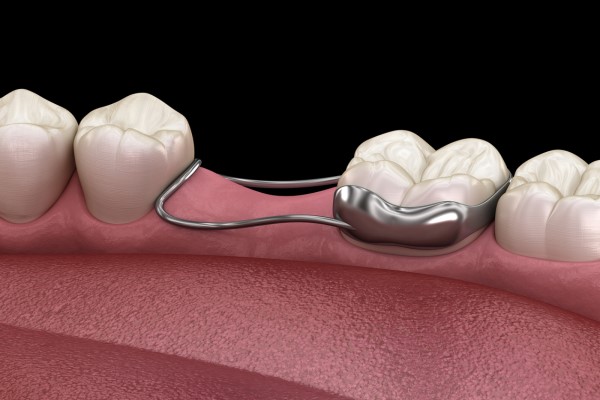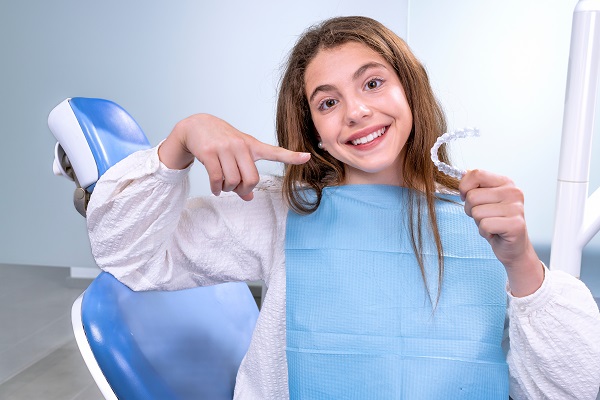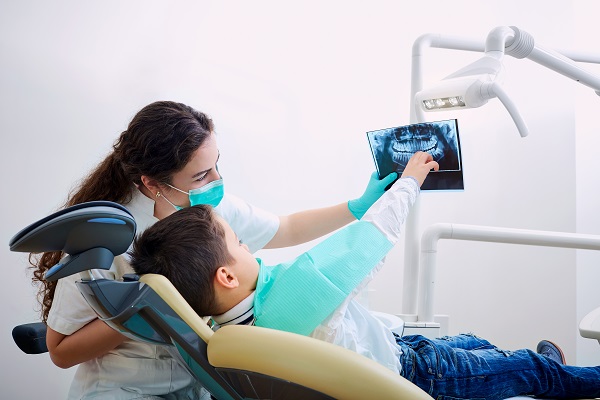When Would an Orthodontist Recommend Space Maintainers?

When a child loses their teeth prematurely, the orthodontist may recommend space maintainers as an early orthodontic intervention. It helps protect the child's smile alignment until the permanent teeth erupt. Continue reading to find out when the dental professional might suggest space maintainers.
The need for space maintainers
In most children, the complete baby teeth, called the milk teeth, are fully in by the time they are three years old. These teeth are important because they function as the frontrunners for adult teeth and help the child perform basic oral functions. When the child turns six or seven, the baby teeth begin to loosen and fall out with the eruption of the permanent teeth. The order of eruption is like baby teeth: the front teeth first, then the back teeth.
However, trauma or severe decay can cause premature tooth loss. If the child has not reached the point where adult teeth are erupting, they will need a space maintainer.
An overview of space maintainers
After a baby tooth is lost, the nearby teeth may begin to move or erupt in awkward angles that may limit the space available for the eruption of the adult tooth. This can lead to crowding in the mouth, which may require a more extensive orthodontic treatment to fix later.
The space maintainer's function is as the name sounds: to preserve the gap in the jaw and prevent other teeth from drifting so adult teeth can erupt without trouble. The appliance works passively and does not induce any pressure on the teeth. Removable and fixed options are available, and an artificial tooth may be attached to aid chewing or make the smile look better.
The choice of space maintainers depends on the patient's age, their teeth positions, and their (or their parents') budget. Removable space maintainers, which have artificial teeth, are ideal for children who are old enough to clean the appliance regularly.
Fixed space maintainers come in three main types. Unilateral space maintainers comprise a stainless steel band that wraps around the outside of a nearby tooth and a metal lock to preserve the space. Lingual space maintainers comprise stainless-steel bands that are connected to the first adult molars and a round wire that runs along the lingual surfaces of the teeth. The last type of fixed maintainer is the distal shoe appliance, which is used when an unerupted permanent molar is present at the back of the mouth. This type is more complex because the device's end extends into the gums to guide the molar's eruption.
How important are space maintainers?
The orthodontist will determine if the child requires space maintainers based on their dentition and estimated growth pattern. A space maintainer guarantees that the jaw will have enough space for adult teeth eruption and can help prevent impaction and overcrowding. Failure to use the device might cause the teeth to become crowded or crooked, necessitating braces or aligners to correct.
Final note
Getting space maintainers does not always mean that the child will not have to undergo orthodontic treatment when they grow older. It is advisable to regularly consult the orthodontist so the child can undergo the necessary evaluations and get the best recommendations.
Request an appointment here: https://www.drsallysong.com or call The Orthodontic Center Of Wayne - Dr. Sally Song at (973) 696-5220 for an appointment in our Wayne office.
Check out what others are saying about our services on Yelp: Read our Yelp reviews.
Recent Posts
Even though braces are common among teenagers, getting them is a new orthodontic experience for every patient. Teens and their parents tend to have many questions about braces and other orthodontic treatments for teens, when to get braces, and what having braces will be like. Here are some of the most common questions orthodontists hear…
The primary goal of early orthodontic treatment is to prevent and fix bite misalignments. Several causes, including genetics, the premature loss of primary (baby) teeth, and harmful oral habits (like thumb sucking) may lead to such anomalies. Orthodontic abnormalities might be congenital or occur during early childhood. Straight teeth can reduce the incidence of dental…
Invisalign® has changed how willing teenagers –– and everyone else –– are to start teeth straightening treatments. It provides an alternative to traditional metal braces that is virtually impossible to detect. Invisalign® treatments work the same way conventional braces work, the aligner trays exert a force on the patient's teeth pushing their teeth into better…
Oral health is foundational to good overall health. Through the help of an orthodontist and bite correction, difficulties with chewing or speaking can be overcome. The inability to ingest food or clearly articulate impacts both physical and mental health. Bite correction has the potential to change the course of an individual’s health and wellness.Changes in…


